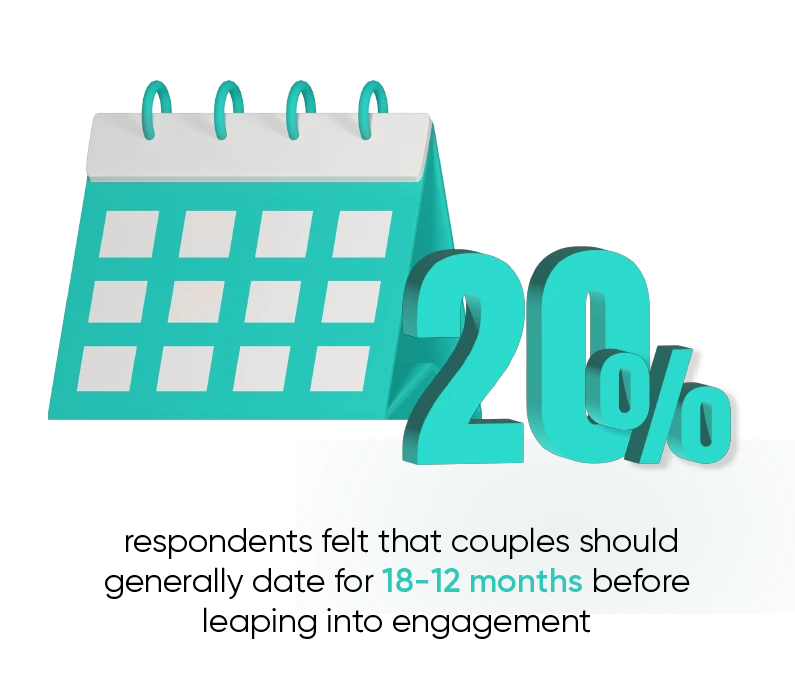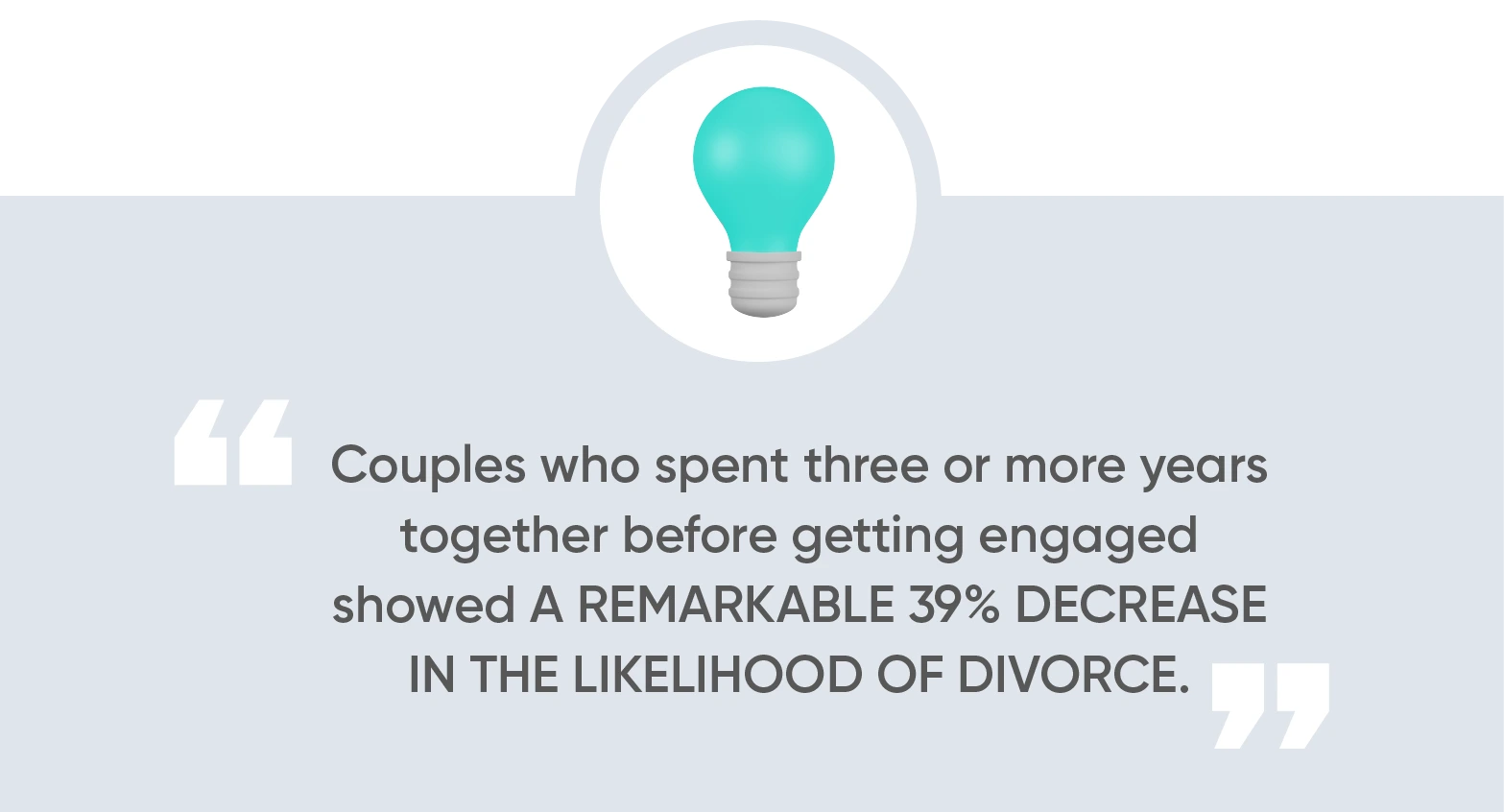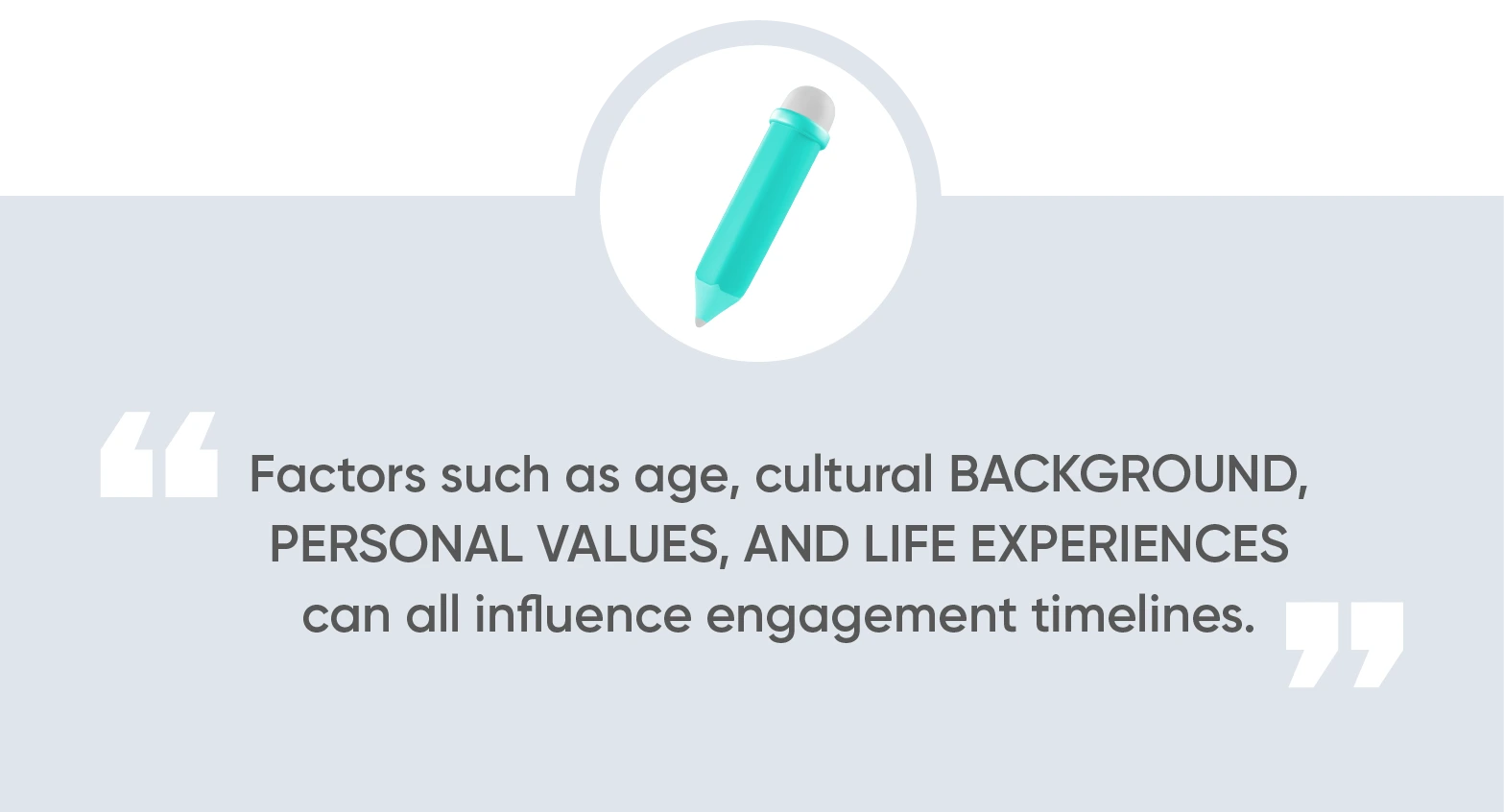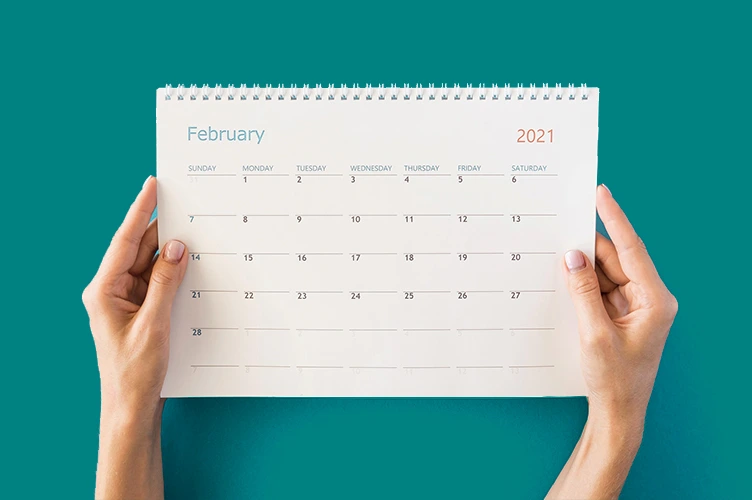Embarking on the journey of proposing, getting engaged, and planning a wedding is an exciting phase in a person’s life. It signifies the joy of a fulfilling relationship and the desire to make lasting commitments for a blissful future together.
However, a proposal goes beyond happiness, requiring thoughtful consideration and readiness.
To simplify matters, we’ve conducted thorough research and analyzed relevant studies on this topic, aiming to determine the ideal timing for a proposal. By gaining insights from these expert perspectives, you’ll feel empowered to make well-informed decisions regarding this significant next step in your relationship.
What You Will Learn
Exploring the Data: How Long is the Average Dating Time Before Engagement?
Love has its own timeline, and when it comes to relationships, the journey from dating to engagement varies for every couple. However, the data still shows a few dating timeline trends.
The Knot’s 2021 Engagement and Jewelry Study found that the average duration of a relationship before marriage is two years or longer. This timeframe was observed in approximately 70% of the couples surveyed, indicating that around 30% decided to get engaged in less than two years. Additionally, an internal study by The Knot revealed the average engagement period for couples in the United States is 16 months.
Data on Beliefs Around Dating Before Marriage
However, there are differences between how long couples date before engagement and how long they think they should date before an engagement.
According to data from YouGov, 20% of survey respondents felt that couples should generally date for 12-18 months before leaping into engagement. An additional 15% of respondents suggested a dating period of 18-24 months, while another 15% believed two to three years of dating was the ideal timeframe. A mere 2% of respondents believed individuals should date for “less than six months” before getting engaged.
Interestingly, the data revealed a slight difference in perspectives between genders. Among male respondents, 20% felt that a dating period of six to 12 months was sufficient. In comparison, only 16% of female participants shared this view. The most popular response among women was 12-18 months of dating before getting engaged, with 21% selecting this option.
Generational Differences
Beyond differences in dating beliefs between genders, there are also generational differences.
According to Brides.com, American couples typically spend an average of two to five years dating before tying the knot.
However, millennial couples, those aged 25 to 34 at the time of surveys and Census records, were the exception, tending to wait an average of six and a half years before married life. This data suggests that millennials, as a generation, may prioritize a longer dating period, before making the long-term commitment of marriage.
Longer Dating Periods (Often) Lead to More Successful Marriages
A comprehensive study conducted in 2015, which analyzed data from 3,000 married couples, revealed a significant correlation between the duration of the dating period and the likelihood of a successful marriage.
The study found that couples who dated for one to two years before getting engaged had a 20% lower likelihood of getting divorced than those who rushed into an engagement in less than a year. Furthermore, couples who spent three or more years together before getting engaged showed a remarkable 39% decrease in the likelihood of divorce.
These findings underscore the importance of allowing sufficient time for a relationship to develop and mature before marriage. Taking the time to ride out the highly passionate honeymoon phase of dating, before making any long-term decisions, can contribute to the longevity and success of a marriage.
There’s No One-Size-Fits-All Timeline
All the above findings highlight the variations in relationship timelines and engagement durations, emphasizing that there is no one-size-fits-all approach to the journey towards marriage.
While averages provide a general perspective, it’s important to acknowledge that individual factors greatly influence the dating period before engagement. Factors such as age, cultural background, personal values, and life experiences can all influence engagement timelines.
5 Clear Indicators You're Prepared to Propose
Deciding to propose is one of the most significant and romantic relationship milestones. It’s a step toward a lifetime commitment and a declaration of love and devotion.
However, before taking this monumental leap and dropping hints, ensure that you’re truly ready. Fortunately, there are clear indicators that can help you determine if you’re prepared to get down on one knee.
1. A Deep Emotional Connection
One of the most evident signs you’re prepared to propose is a deep emotional connection with your partner. You genuinely understand and appreciate each other, more so than in past relationships. You’ve built a strong foundation of trust, mutual respect, and open communication. The thought of your partner being the only person you spend the rest of your life with brings you immense joy and fulfillment.
2. Shared Values and Future Goals
Proposing marriage involves envisioning a shared future. If you and your partner share similar values, dreams, and aspirations, it’s a promising indicator that you’re a good match. Ensure you have discussed your long-term goals, including family, career, and lifestyle preferences, and have found that you’re on the same page. This mutual understanding fosters a sense of stability and compatibility, setting the stage for a successful marriage.
3. A Strong Relationship Foundation
Before proposing, it’s crucial to have a solid foundation in your relationship. This entails having weathered challenges together, gained a deep understanding of how things make your partner feel, and shown resilience as a couple. You have effectively navigated conflicts, compromising and growing together as a result.
4. Open and Honest Communication
Open communication is vital in any healthy relationship, especially when considering marriage. If you and your partner can openly discuss your thoughts, feelings, and concerns, it’s a good sign. Honest and effective communication allows you to address important topics such as finances, future plans, and potential challenges. Being able to have difficult conversations with empathy and understanding strongly indicates your readiness to propose.
5. Financial Stability
Are you financially stable? While love is the cornerstone of any relationship, financial preparedness is also essential. Before proposing, you should feel confident in your ability to contribute to a stable and secure life together, moving forward. This includes having a budget, managing debts responsibly, and discussing financial expectations openly with your partner.
3 Signs It Might Be Too Soon for a Big Step
Just like there are signs you might be ready to propose, there are also signs you might want to wait a while. While the excitement of the early stages of a romance can make you eager to take the plunge, it’s important to evaluate if it is too soon to propose. Rushing into a commitment without considering certain factors can potentially lead to challenges down the road. Do you have…
1. Limited Time Together?
Building a strong foundation takes time, and if you and your partner have only been dating a few months, it might be premature to consider a proposal. Quality time is essential for truly getting to know one another, understanding each other’s values, quirks, and compatibility. Allow your current relationship to develop organically and ensure you’ve weathered the honeymoon stage.
2. Unclear Future Goals and Compatibility?
A successful partnership relies on shared goals and a vision for the future. If you and your partner have not discussed important aspects of life such as marriage, children, career aspirations, and other lifestyle preferences, it might be too soon to propose. Before shopping for an engagement ring, iron out any compatibility issues.
3. Pressure Within the Relationship?
Do you feel pressured within the relationship? Feeling pressured by external factors, such as societal expectations, engagement season, or the influence of friends and family, can cloud your judgment when considering how long is too soon to propose.
Make decisions based on your own readiness and not succumb to external pressures. Take the time to evaluate your feelings and ensure that your desire for wedding bells stems from a genuine place of love and commitment, rather than outside influences. This is something that only you know.
Protect Your Investment
By recognizing the indicators discussed in this article, you can gain greater insight into how soon is too soon to propose, in your individual situation. Remember, every relationship is unique, and you must listen to your heart and communicate openly with your partner.
When you’re with the right person, all the signs align, and the love your partner shows is magical, you can confidently move forward with your proposal, embarking on an exciting journey of growth and partnership.
Once you’re ready to shop for engagement rings, consider purchasing jewelry insurance, to protect your valuables. At BriteCo we provide comprehensive and affordable jewelry insurance. Our policies include protection against loss, theft, and damage, anywhere in the world, so you can rest assured that your engagement ring is protected and in good hands.
For more information, get in touch, or use our online tool to get a quote.
Also Check:
5 tips for planning the perfect proposal
Is He Going To Propose? | BriteCo Jewelry Insurance











